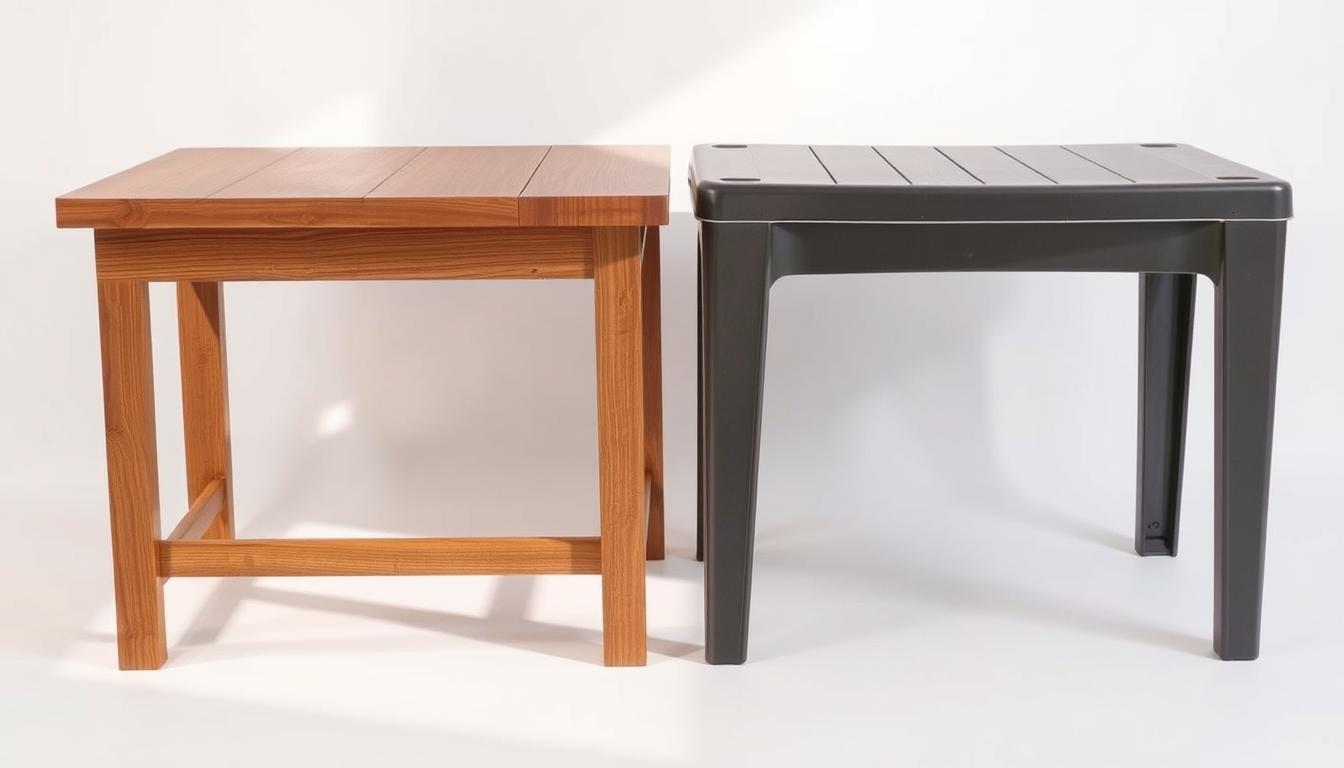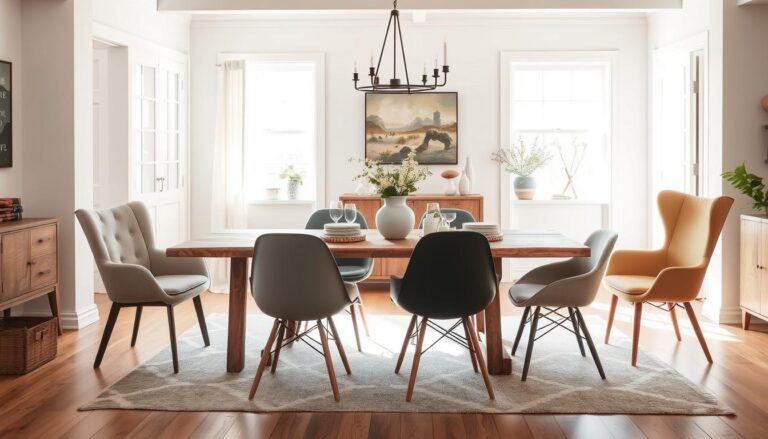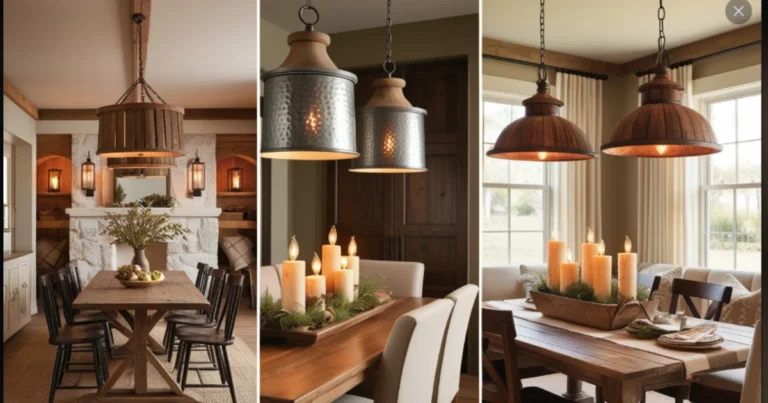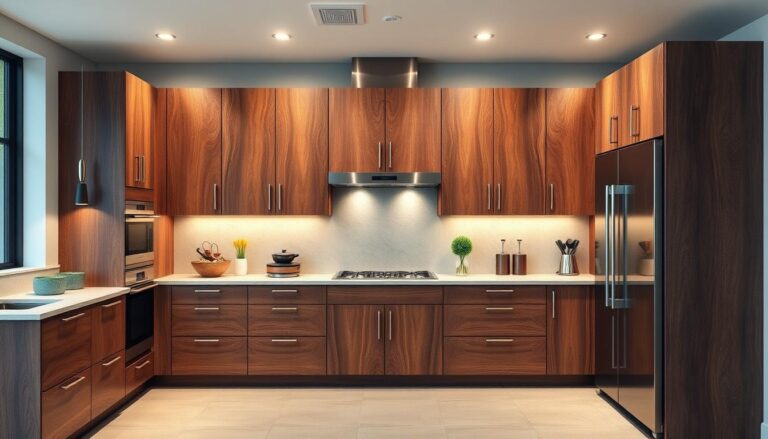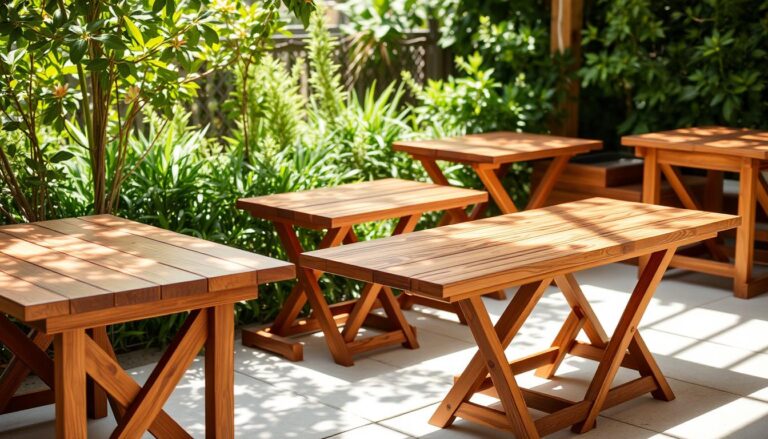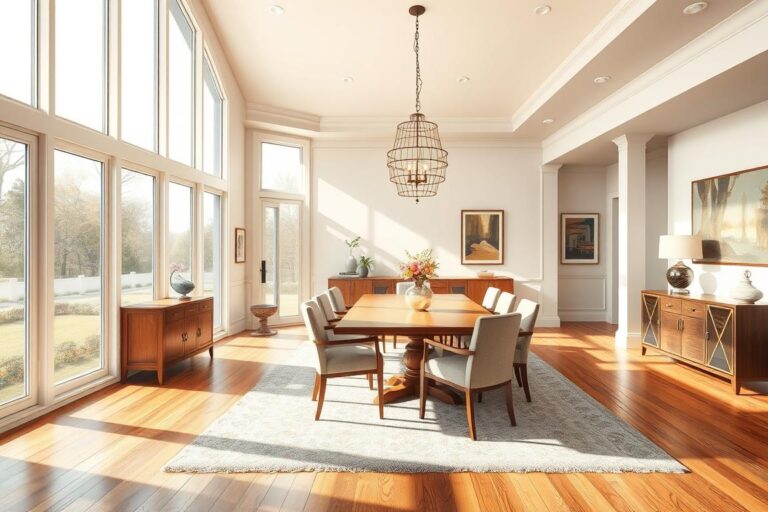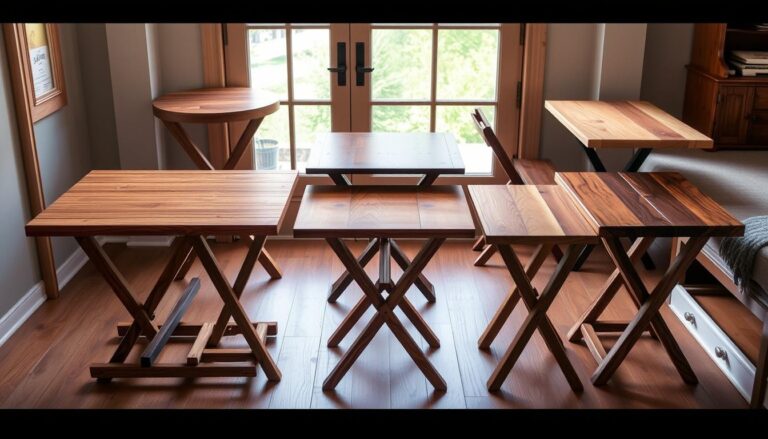Wood vs Plastic Folding Tables: Pros and Cons
Are you stuck deciding between a Wood vs Plastic Folding Tables? It’s tough without knowing the advantages and disadvantages of each.
Folding tables are handy for many uses, like temporary workspaces or event furniture. The material you choose affects how long it lasts, how easy it is to clean, and how well it works.
When picking between a Wood Folding Table vs Plastic Folding Table, think about durability, aesthetics, and environmental impact. This guide helps you see the good and bad sides of each option.
Key Takeaways
- Durability comparison between wood and plastic folding tables
- Aesthetic differences and their impact on usage
- Environmental considerations for both materials
- Maintenance requirements for wood vs plastic tables
- Cost-effectiveness of each type
Understanding Folding Tables: An Overview
Folding tables are everywhere, from homes to outdoor events. They are made to be flexible, fitting many needs and uses.
The Evolution of Folding Tables
Folding tables have changed a lot since they first appeared. They started in the military and outdoors, but now you see them everywhere. Advancements in materials and design have made them stronger and look better. Now, you can find them in wood and plastic, each with its own perks.
Common Uses and Applications
Folding tables are used in many places because they are easy to use and versatile. Here are some examples:
- Hosting events such as parties, weddings, and conferences
- Providing temporary workspaces or display areas
- Serving as additional dining or serving tables in homes
Folding tables are perfect for both inside and outside activities because of their flexibility.
Wood vs Plastic Folding Tables: A Comprehensive Comparison
Wood and plastic folding tables have their own pros and cons. They are good for different uses. Knowing these differences helps you choose the right one for your needs.
Key Differences at a Glance
The main differences are in material, durability, and looks. Wood folding tables are made from solid hardwoods or engineered wood. They have a natural look and feel that many like. On the other hand, plastic folding tables are made from plastic polymers. They are lightweight and easy to clean.
Experts say, “The choice between wood and plastic depends on use and personal taste.”
“Wood tables add warmth and a natural look to any place. Plastic tables are durable and easy to keep clean.”
When to Choose Each Type
Choosing between wood and plastic folding tables depends on several factors. These include the use, budget, and personal taste. For example, wood folding tables are great for indoor events where looks matter. Plastic folding tables are better for outdoor events or places where cleaning is easy.
Think about how long each table lasts and how much care they need. Wood tables need more care but last longer. Plastic tables are cheaper and easy to clean but not as long-lasting.
Material Composition and Construction
Knowing what a folding table is made of is key to understanding its quality. The material affects how long it lasts, how heavy it is, and how well it works.
Wood Folding Tables: Types of Wood Used
Wooden folding tables come in different types of wood. Each type has its own benefits.
- Hardwoods, known for their density and strength
- Softwoods, which are generally lighter and more affordable
Hardwood vs. Softwood Options
Hardwoods like oak and maple are tough and last long. They’re great for heavy use. Softwoods, like pine, are cheaper and work well for lighter tasks.
Engineered Wood Alternatives
Engineered wood, like plywood and MDF, is a cost-effective choice. It’s made to be consistent and waste-free.
Plastic Folding Tables: Polymer Types and Manufacturing
Plastic folding tables are made from different polymers. Each has its own features.
- Polyethylene, known for its impact resistance
- Polypropylene, valued for its flexibility and durability
Polyethylene vs. Polypropylene
Polyethylene is tough and can handle chemicals well. Polypropylene is light and easy to clean.
Blow-Molded vs. Injection-Molded Construction
The way a plastic table is made matters. Blow-molding makes hollow parts, while injection-molding creates detailed shapes.
Durability and Longevity Analysis
When choosing between wood and plastic folding tables, it’s important to think about how long they last. Each type has its own strengths and weaknesses when it comes to durability.
Wood Folding Tables: Strength and Wear Patterns
Wood folding tables are built to last, thanks to their sturdy construction. But, the type of wood and the finish can affect how long they last.
Weight Capacity and Structural Integrity
The weight a wood folding table can hold depends on its structural integrity. Tables with strong frames and legs can handle more weight.
Common Damage and Repair Options
Wood tables can get scratched, dented, or damaged by water. Keeping them polished and applying a protective finish can help prevent these problems.
Wood vs Plastic Folding Tables: Impact Resistance and Degradation
Plastic folding tables are light and can resist some damage. But, their durability depends on the plastic’s quality.
UV Resistance and Outdoor Durability
The UV resistance of plastic tables is crucial for outdoor use. Tables made with UV-stabilized plastic last longer outside.
Typical Lifespan Expectations
The life of a plastic table depends on how it’s used and cared for. Good-quality plastic tables can last many years with the right maintenance.
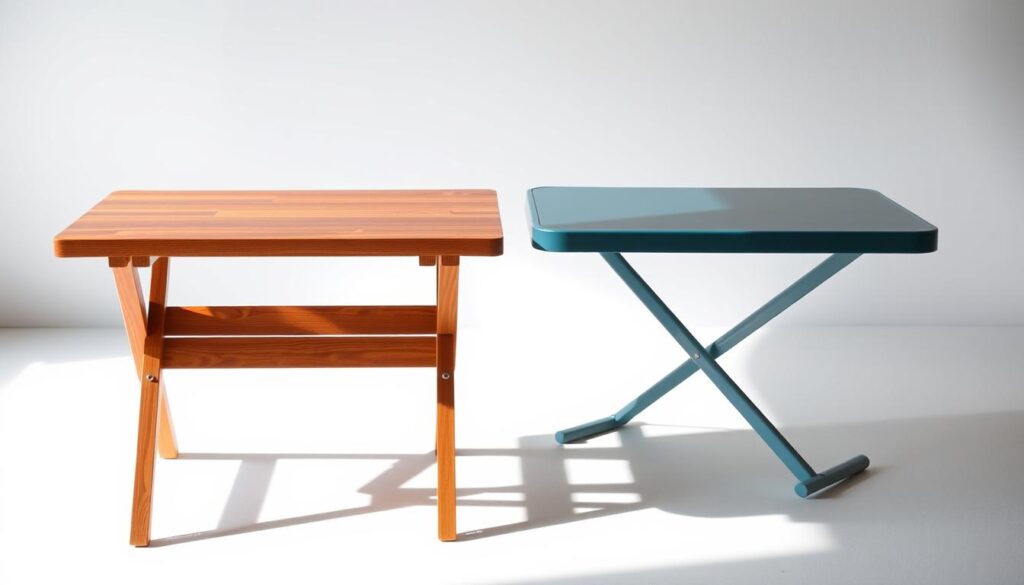
Weight and Portability Factors
Portability is key for folding tables, with wood and plastic offering different perks. It’s important to look at the material’s impact on weight and portability.
The weight of a folding table affects its use, especially when it’s moved often. We’ll dive into the weight aspects of both wood and plastic tables.
Wood Tables: Weight Considerations
Wooden folding tables are heavier than plastic ones because wood is denser. The weight depends on the wood type, with hardwoods like oak being heaviest. For example, a solid oak table can weigh 40 to 60 pounds, based on its size.
Plastic Tables: Lightweight Advantages
Plastic folding tables are lighter, making them easier to move and set up. This is great for events or situations where tables are rearranged often. A standard plastic table weighs 15 to 30 pounds, much less than wood tables.
| Material | Average Weight Range (lbs) | Portability Level |
|---|---|---|
| Wood | 40-60 | Moderate |
| Plastic | 15-30 | High |
Dimensions and Size Options
Folding tables come in many sizes. The right size depends on how you plan to use it and the space you have.
When looking at folding table dimensions, remember to check both the tabletop size and the folded dimensions.
Standard Sizes for Wood Folding Tables
Wood folding tables usually have standard sizes for common uses. Here are some common dimensions:
| Tabletop Size | Folded Dimensions | Typical Use |
|---|---|---|
| 30″ x 60″ | 30″ x 15″ | Small gatherings, home use |
| 36″ x 72″ | 36″ x 18″ | Medium events, parties |
| 48″ x 96″ | 48″ x 24″ | Large events, commercial use |
Common Dimensions of Plastic Folding Tables
Plastic folding tables also have various sizes. They are often similar to wood tables but can vary by manufacturer.
- Folding table size options include 24″ x 48″, 30″ x 60″, and 36″ x 72″.
- These sizes are versatile and can be used for both indoor and outdoor events.
When picking a folding table, think about where it will go and how many people it needs to hold.
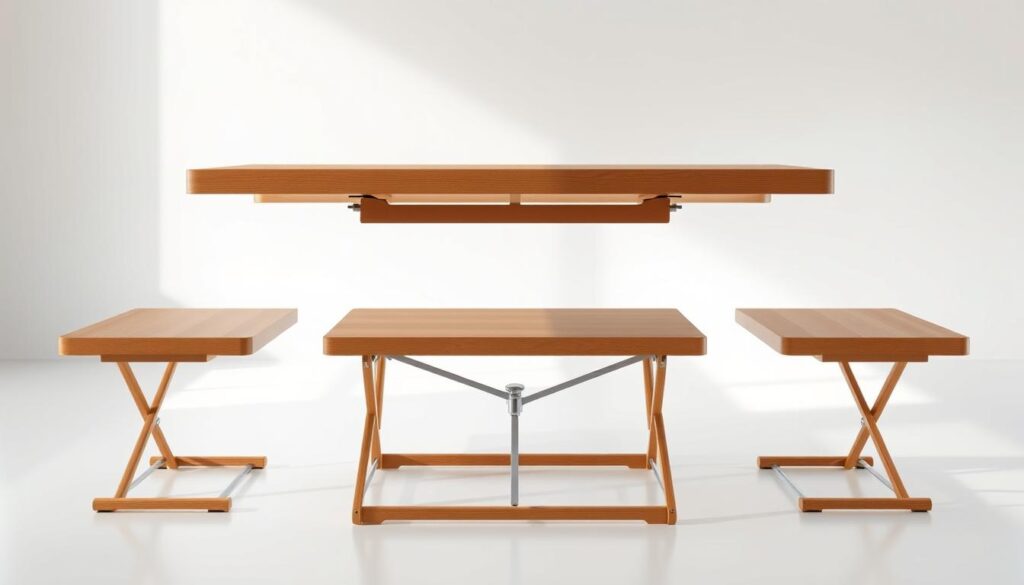
Aesthetic Appeal and Design Options
Folding tables can make an event or room look better. Wood and plastic tables have different looks that fit various settings.
Wood Tables: Natural Beauty and Finish Options
Wood folding tables are loved for their natural look and warmth. They can be finished in many ways to look even better.
Staining and Painting Possibilities
Wood tables can be stained or painted to fit any decor or theme. Staining brings out the wood’s natural grain. Painting lets you create a custom look.
Grain Patterns and Visual Character
The wood’s grain patterns make each table unique. This adds a touch of elegance to any space.
Plastic Tables: Color Varieties and Limitations
Plastic folding tables come in many colors. They’re a good choice for some events or uses.
White Plastic Table Folding Options
White plastic table folding is popular for its clean look. It fits well with many environments.
Texture and Surface Treatments
Some plastic tables have special textures or treatments. These can make them look more premium and appealing.
| Material | Aesthetic Appeal | Design Options |
|---|---|---|
| Wood | Natural beauty, warmth, unique grain patterns | Staining, painting, various finishes |
| Plastic | Colorful, clean appearance | Range of colors, textures, and surface treatments |
Price Comparison and Value Assessment
When choosing folding tables, it’s key to look at the cost. We must weigh the initial price against the long-term benefits. This is true for both wood and plastic tables.
Initial Investment: Wood vs Plastic
The cost of a folding table varies by material. Plastic folding tables are often cheaper at first. They’re great for those watching their budget or for short-term needs. On the other hand, wood folding tables cost more but last longer and look better.
A simple plastic table might cost $20 to $50. But, a wooden table can be $50 to $150 or more. This depends on the wood and how it’s made.
Long-term Value and Replacement Costs
Plastic tables might be cheaper to start, but they don’t last as long. Long-term value is better with wooden tables. They’re more durable and look nicer.
Think about how often you’ll need to replace a table. Cheaper plastic tables might need to be replaced often. This can be bad for the environment. Choosing wisely means looking at the total cost over time, not just the first price.
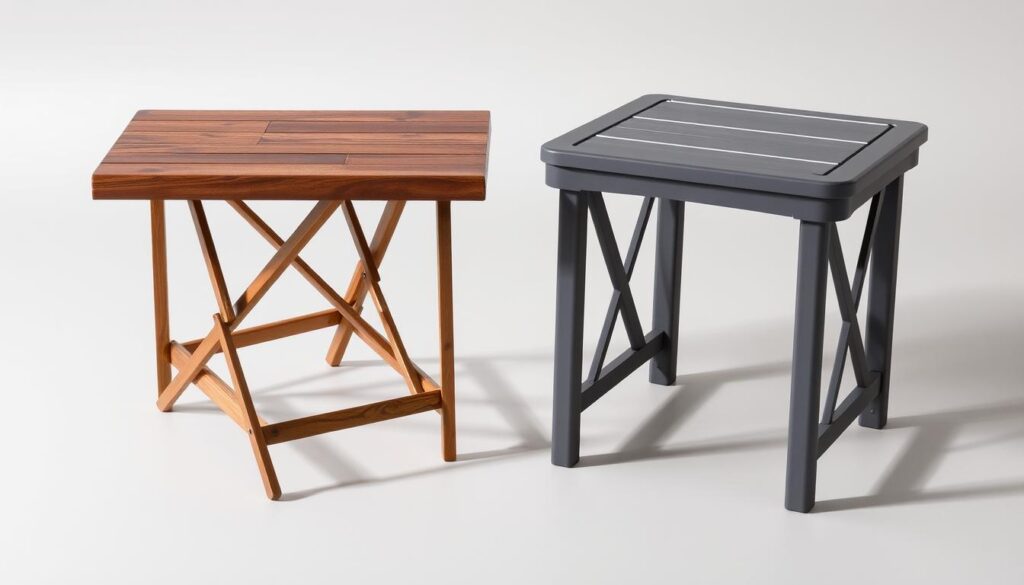
Maintenance Requirements and Cleaning
Keeping your folding tables clean and well-maintained is key. Both wood and plastic tables need different care to last longer. Regular upkeep is essential for their function and durability.
Caring for Wood Folding Tables
Wood tables need special care to stay looking good and strong. Dust them regularly with a soft cloth to avoid scratches.
Refinishing and Restoration Techniques
Wood tables may need a new finish over time. This involves sanding and applying a fresh coat. It helps protect the wood from damage.
Preventing Warping and Damage
Keep wood tables away from sunlight and moisture to avoid warping. Using a waterproof cover when not in use is also helpful.
Cleaning and Maintaining Plastic Folding Tables
Plastic tables are easier to care for than wood ones. Clean them with mild soap and water. They’re great for both outdoor and indoor events.
Stain Removal Strategies
For tough stains on plastic, try baking soda and water. Use a soft brush to gently scrub the stain away.
Preventing Discoloration
Stay away from harsh chemicals and direct sunlight to prevent discoloration. A UV-resistant cover can also protect the surface.
By following these maintenance tips, you can make your tables last longer. They’ll stay in great shape for many years.
Environmental Impact and Sustainability
More people are thinking about the environment when they buy things. This includes wood and plastic folding tables. Choosing between them affects the planet.
Wood Tables: Eco-friendly Aspects
Wood folding tables are better for the planet. They’re made from natural, renewable wood. Eco-friendly wood folding tables come from trees grown in a way that’s good for the earth.
Sustainable Sourcing and Certification
Check if the wood table is certified by groups like the Forest Stewardship Council (FSC). This means the wood was taken from forests that are managed well.
End-of-Life Considerations
Wood tables can be recycled or reused when they’re no longer needed. This helps keep them out of landfills and is good for the planet.
Plastic Tables: Environmental Considerations
Plastic folding tables are strong but not as good for the environment. They’re made from materials that don’t grow back and can pollute.
Recycling Possibilities
Some plastic tables can be recycled, but it’s not easy. You should look into recycling options in your area.
Carbon Footprint Comparison
Making plastic tables uses more energy than making wood tables. But, plastic is lighter, which means it’s easier to move around without using as much fuel.
| Material | Renewable Resource | Recyclability | Carbon Footprint |
|---|---|---|---|
| Wood | Yes | High | Lower |
| Plastic | No | Variable | Higher |
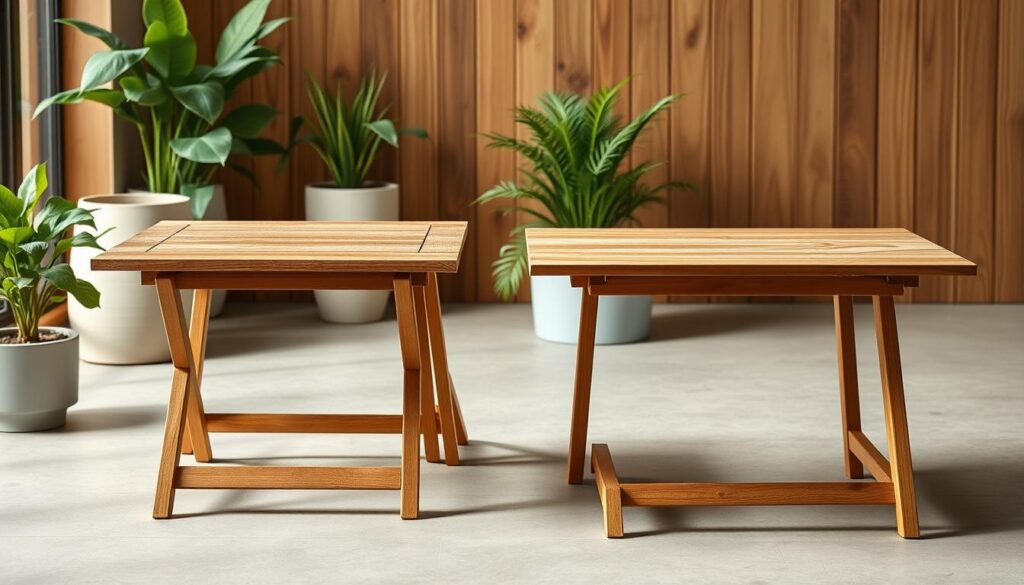
Specific Use Cases and Recommendations
Choosing between wood and plastic folding tables depends on the use case. Different settings need different features from a folding table.
Indoor Events and Home Use
Wood folding tables are great for indoor events and home use. They look good and last long. They fit well with home decor and are perfect for family gatherings or small events.
Outdoor Functions and Weather Exposure
Plastic folding tables are better for outdoor use. They handle moisture and weather better than wood.
Commercial and Institutional Applications
For commercial and institutional needs, the choice between wood and plastic depends on the situation. For example, restaurants and cafes might choose wood for its look. On the other hand, outdoor events organizers might pick plastic for its weather resistance.
Folding tables are versatile, making them useful for many situations. By thinking about each use case, you can decide between wood and plastic folding tables.
Conclusion: Making the Right Choice for Your Needs
Choosing between a wood folding table and a plastic one depends on several things. These include durability, how easy they are to maintain, their look, and their impact on the environment.
Wood folding tables are known for their natural beauty and lasting quality. On the other hand, plastic folding tables are light and simple to clean. This makes them a good choice for those who value convenience.
When deciding, think about how you plan to use the table, your budget, and what you like. It’s important to weigh the pros and cons of each option. This way, you can pick the best one for you.
Knowing what each type offers helps you make a choice that fits your needs. This ensures you get a table that works well for you.

